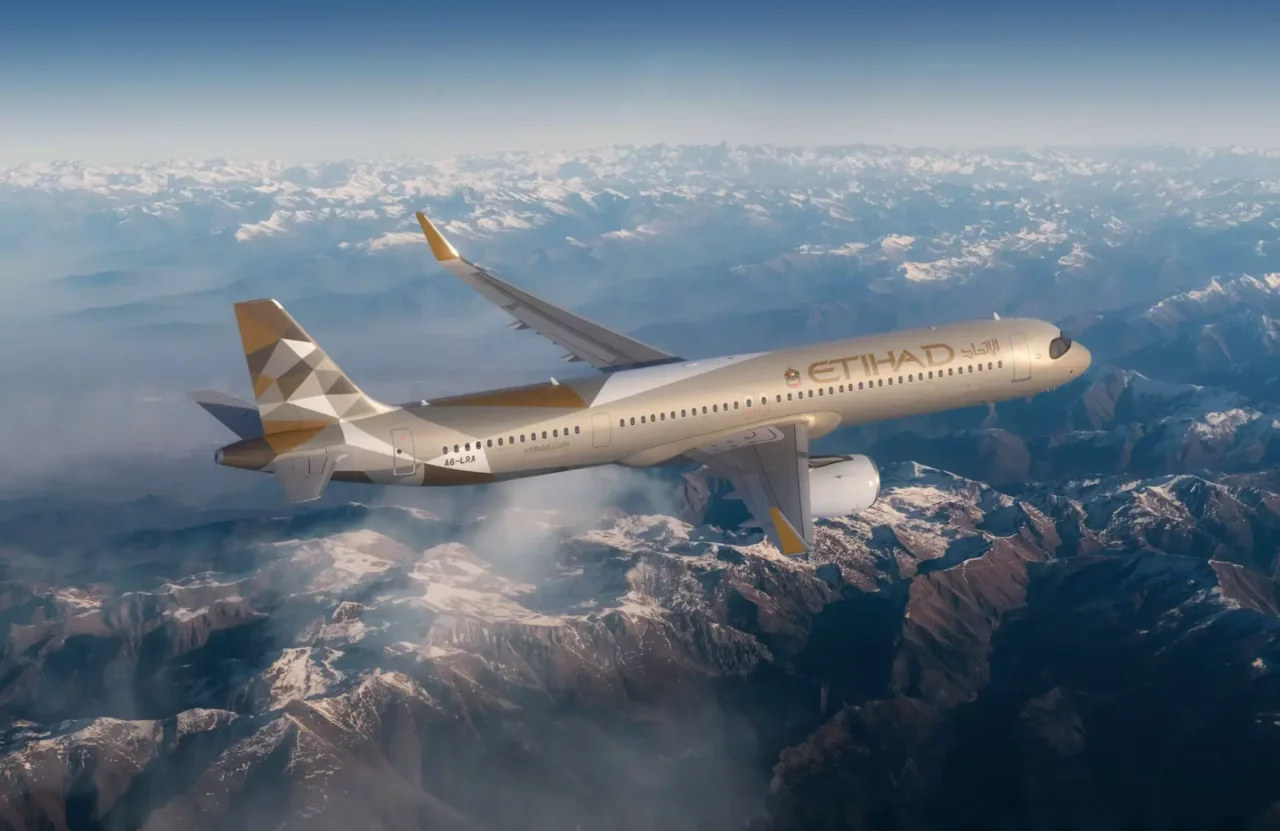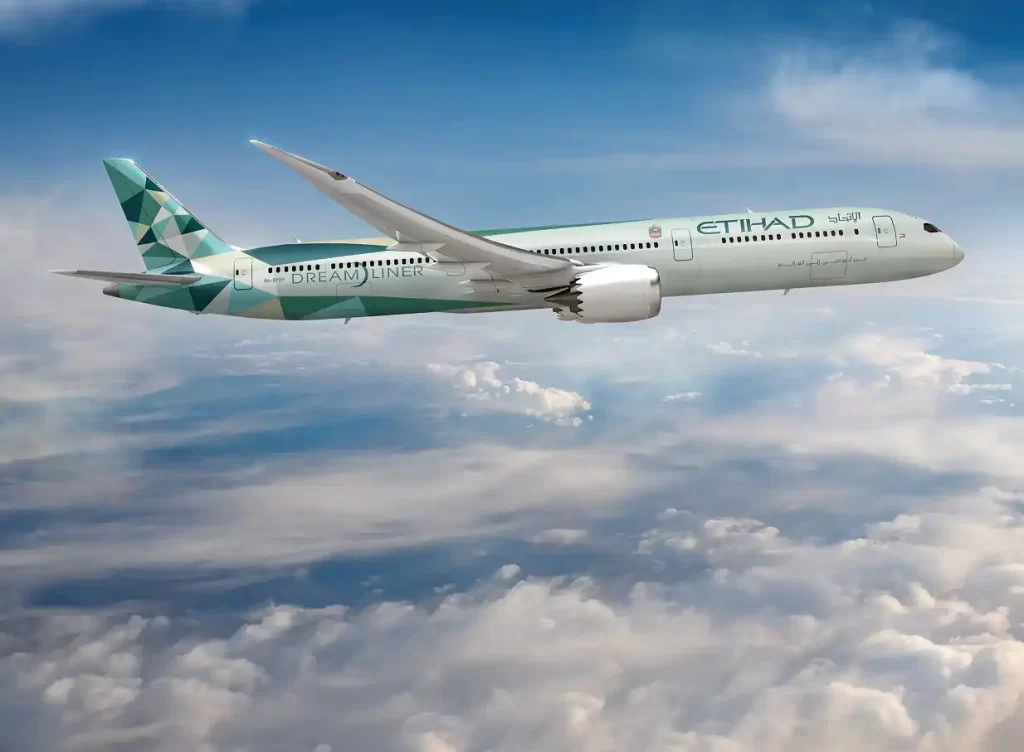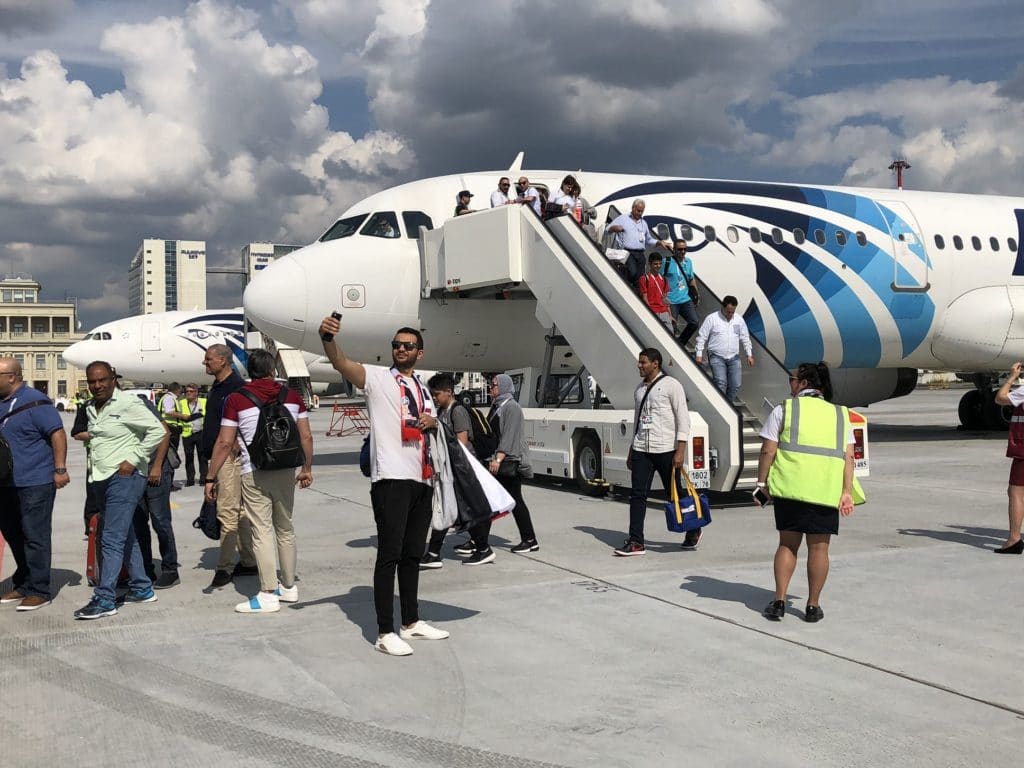Etihad Airways has provided an update on its current and planned operations as COVID-19 travel restrictions remain in place around the world.
Subject to UAE government imposed travel restrictions being lifted on passenger travel, Etihad plans to operate a reduced network of scheduled passenger services from 1 May to 30 June, with the aim of gradually returning to a fuller schedule as and when the global situation improves.
Etihad is also continuing to operate a growing schedule of special passenger flights allowing foreign nationals in the UAE the opportunity to travel out of the country, and to carry essential belly-hold cargo such as perishables, pharmaceuticals, and medical supplies. To date, the airline has also repatriated almost 600 UAE nationals on return services.
Tony Douglas, Group Chief Executive Officer, Etihad Aviation Group, said: “The term ‘unprecedented’ is currently the most used in our industry, and the most appropriate. The monumental challenges being faced by all airlines, and our customers, have been beyond measure. However, we remain cautiously optimistic and will push ahead with our plans to resume normal flying, while striving to better serve and support our customers and our employees.
“While the intention is to assume a ‘business as usual’ approach to the restart of our operations, the aviation landscape has changed, and how it will look month by month is difficult to predict. This has necessitated a fundamental shift in focus for us. However, the cumulative gains achieved by our ongoing transformation, and the unwavering support of our shareholder, has left us in a relatively strong position to withstand any instability. We will pivot on this and act with agility to seize opportunities we may not have previously considered.
“We are implementing a series of network-wide route and fleet efficiencies, while conducting an extensive brand study and trialing new service concepts in our guest experience proposition. We are also using this time to drive further internal improvements in the efficient use of automation and technology across all areas of the business, while maintaining productivity, creativity and quality.”
Network and Fleet
Currently, Etihad is using 22 Boeing 787 Dreamliners and 777-300ER passenger aircraft, with five more ready for service, to complement its operational fleet of five 777-200F freighters. These aircraft are providing scheduled and special passenger and belly-hold cargo services to several destinations worldwide.
Since 25 March, approximately 500 special passenger, freighter and cargo flights have been operated. These include passenger and belly-hold freight flights to Amsterdam, Bogota, Brussels, Dublin, Frankfurt, Jakarta, London Heathrow, Manila, Melbourne, Paris Charles de Gaulle, Seoul Incheon, Singapore, Tokyo Narita, Washington, D.C., and Zurich, with other destinations planned.
Etihad has revised the launch date of its inaugural service to Vienna from 22 May to 1 July.
Etihad Cargo is now operating up to 100 turnaround flights per week to 32 destinations on five continents. In addition to normal scheduled cargo services, special freighter and humanitarian flights have been flown to Addis Ababa, Amsterdam, Beijing, Bogota, Bucharest, Copenhagen, Chennai, Cochin, Dublin, Frankfurt, Jeddah, Johannesburg, Karachi, Khartoum, Kyiv, Milan, Paris, Rome, Shanghai, Tbilisi, Wuhan, and Zagreb. More special flights will be introduced in the coming weeks.
Most extensive maintenance programme in Etihad’s history
With 80 per cent of its passenger fleet on the ground, the airline has embarked on the biggest aircraft maintenance programme in its history. Etihad Engineering, the group’s Engineering Maintenance Repair and Overhaul (MRO) division, is performing maintenance work on 96 passenger aircraft including 29 Airbus A320 and A321s, 10 Airbus A380s, 38 Boeing 787s, and 19 Boeing 777-300ERs. The programme ranges from minor maintenance tasks, such as seat repairs and updates to Inflight Entertainment Systems, to bringing forward scheduled engine changes and modifications on several aircraft, eliminating the need to withdraw them from service when flights begin operating again.
To date, this work has seen almost 19,000 seat covers laundered, and over 40 rolls of new carpets and 367 metres of leather used. Furthermore, approximately 5,000 aircraft touch points have been checked, and more than 4,000 parts fabricated through the engineering workshop.








